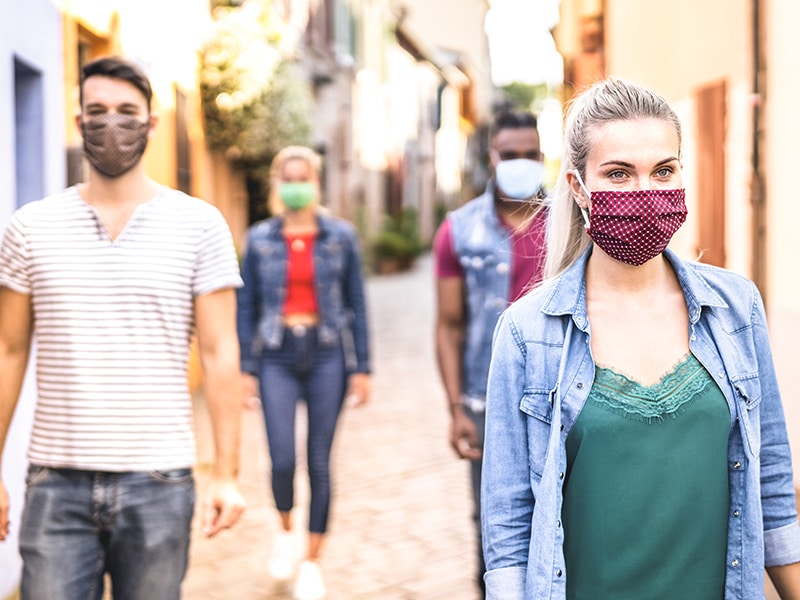Since the early days of the pandemic, we’ve known that older adults — especially those with chronic health issues — are most at risk for COVID-19. But a surge of cases in young people reminds us that no one is immune to this disease.
“A large percent of people we’re seeing are from the younger age groups that may have become fatigued with all the COVID-19 restrictions, isolation, and self-quarantine,” says Brad Sellers, DO, medical director of the emergency department at Methodist Dallas Medical Center.
Denton and Collin counties recently reported people in their 20s have the highest number of COVID-19 cases out of all age groups. In Dallas County, people age 40 and younger make up more than half of all confirmed positive cases in the county (54%) as of June 30. Most of them are in the 18-to-40 range.
For these groups, Dr. Sellers has a clear message: Face coverings and social distancing are still needed to protect you and your loved ones.
At risk no matter your age
While many young people show no symptoms, that’s not always the case. Some COVID-19 patients under 40 have visited the emergency department for life-threatening blood clots.
Clots are normal and healthy when it comes to staunching external bleeding. But when formed inside blood vessels, they can disrupt oxygen supplies to vital organs, with potentially deadly consequences.
Clots can form and travel to other organs, including the heart and lungs.
“As a matter of fact, what we’re seeing is a lot of what we call pulmonary emboli, which are blood clots in the lungs,” Dr. Sellers says.
If a clot travels to the brain, it can cause a stroke. The Washington Post reports doctors have observed fairly young COVID-19 patients experiencing strokes that are typically associated with much older adults.
When to get help
“If you’re experiencing emergency symptoms — shortness of breath, rapid heartbeat, or severe dizziness — you should seek help immediately,” Dr. Sellers says. “If you have a blood clot and we catch it early on, we can give you anticoagulant medication to resolve the clot, and you can recover.”
Even children aren’t immune to the effects of COVID-19. Reports of pediatric cases have been linked to serious conditions of systemic inflammation, which often require hospitalization.
“You might feel invincible to COVID-19, but everyone around you certainly is not,” Dr. Sellers says.
Stop the spread
In recent weeks, people young and old may have let their guard down, congregating in restaurants, pools, and parties as more public spaces open for business.
“Many of them aren’t wearing masks, and that’s causing the problem,” Dr. Sellers says.
What’s more, people infected with COVID-19 may not even realize they’re sick until it’s too late.
“They might have minimal to no symptoms,” Dr. Sellers explains. “But they take it home to their parents and grandparents, and those are the people getting the sickest from this disease.”
Adults age 65 and older are still the most at risk for a severe infection, but the hospitalization rate for younger patients is climbing as well, according to the Centers for Disease Control and Prevention (CDC).
“Many of the younger people we’re seeing are sicker than they were at the beginning of the pandemic because of the exposure they’ve had,” Dr. Sellers says.
He recommends wearing a mask, washing your hands, and keeping your distance from others, especially large groups.
“These recommended guidelines work and are there for a reason,” Dr. Sellers says. “You just have to be cautious and careful.”
Here’s what COVID-19 can do to your lungs.

